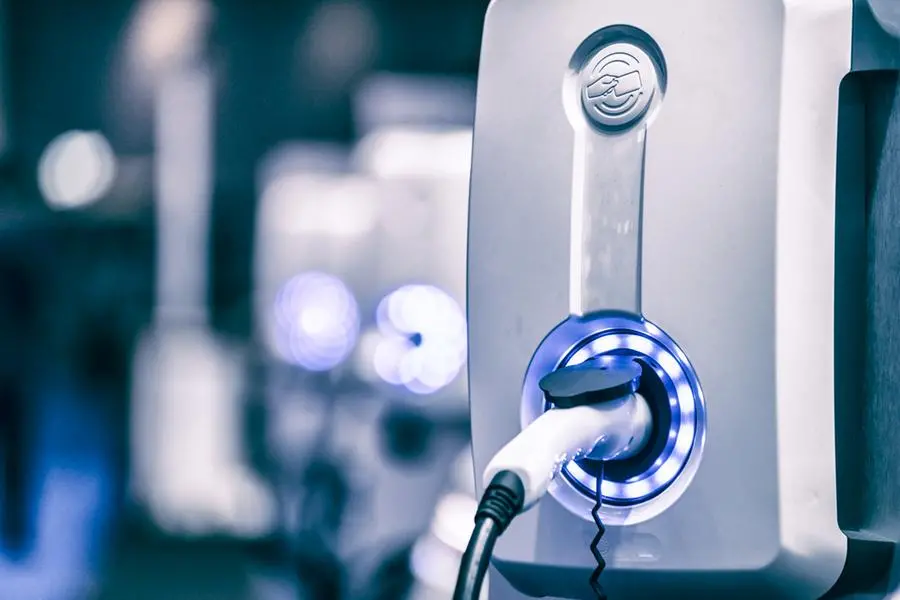PHOTO
Challenges and opportunities presented by the burgeoning electric vehicles (EV) sector were discussed during a key forum that brought together international experts and regional stakeholders in Manama yesterday.
Convened by the Bahrain Insurance Association (BIA) at the Gulf Hotel Bahrain Convention and Spa, the first EV forum delved into critical aspects of EV adoption, with dedicated sessions on infrastructure, charging networks and connectivity.
“Electric vehicles are the future of the global automotive industry,” declared Jawad Mohammed, chief executive of Solidarity Bahrain and chairman of the BIA. “With nearly half of global car sales projected to be EVs by 2035, the entire ecosystem needs to adapt. This forum aims to address key issues surrounding this shift,” he added.
He emphasised the forum’s role in addressing key issues surrounding this transition. “Bahrain aims to set a global benchmark for industry collaboration,” Mr Mohammed added. “We hope participants will leverage this forum to develop a successful national EV strategy, exploring the entire lifecycle of electric vehicles. We thank everyone for joining us in shaping the future of mobility in Bahrain.”
Speakers of international repute joined industry leaders and key figures from the region for interactive discussions, keynote speeches, and industry networking sessions.
The forum delved into critical topics including infrastructure development, charging and connectivity solutions, Original Equipment Manufacturer (OEM) adaptation, and innovative insurance solutions for EVs. Discussions also addressed accident scene safety, reliable vehicle recovery, understanding EV technology, and the lifecycle of electric vehicles, including end-of-life considerations.
It kicked off with an interactive session on ‘Infrastructure, Charging and Connectivity’ led by Bruno Soares of ESB International, Bahrain, where speakers explored essential factors for an effective national EV strategy, including projected EV growth, necessary charging infrastructure, and logistical requirements. They also shared best practices to overcome potential roadblocks.
Highlighting the importance of infrastructure readiness, and the role of technologies such as Internet of Things and Artificial Intelligence, in the success of EV deployment and adoption, Dr Hamid Menouar, principal R&D and innovation lead at Qatar Mobility Innovations Centre (QMIC), said: “EV signifies more than just the vehicle; it embodies a comprehensive ecosystem where infrastructure readiness stands as the cornerstone for sustainable progress.”
Addressing concerns about OEM transition from internal combustion engine (ICE) vehicles to electric models, Michael Goode, senior general manager of aftersales at Ebrahim K. Kanoo, (EK Kanoo), highlighted the need for parallel advancements. “Customer care, road safety, and repair practices must evolve alongside technology,” Mr Goode said. “Collaboration is key to ensure a smooth transition for all drivers in the kingdom.”
Safety considerations at accident scenes involving EVs formed another crucial discussion point. Richard Dunbar, managing director of Park Lodge International in the UK, underscored the importance of learning from other countries’ experiences. “Early responders in other nations initially lacked established safety standards for handling EV accidents and recovery,” explained Mr Dunbar. “Bahrain has the advantage of learning from both their mistakes and successes. The forum’s outcomes will be critical in shaping the future of EV mobility in the kingdom.”
The forum was aligned with the BIA’s commitment to raising public awareness for various segments of society and served as a step towards fostering education, training, and technical skill development, ultimately promoting sound professional standards within the insurance industry.
Copyright 2022 Al Hilal Publishing and Marketing Group Provided by SyndiGate Media Inc. (Syndigate.info).





















